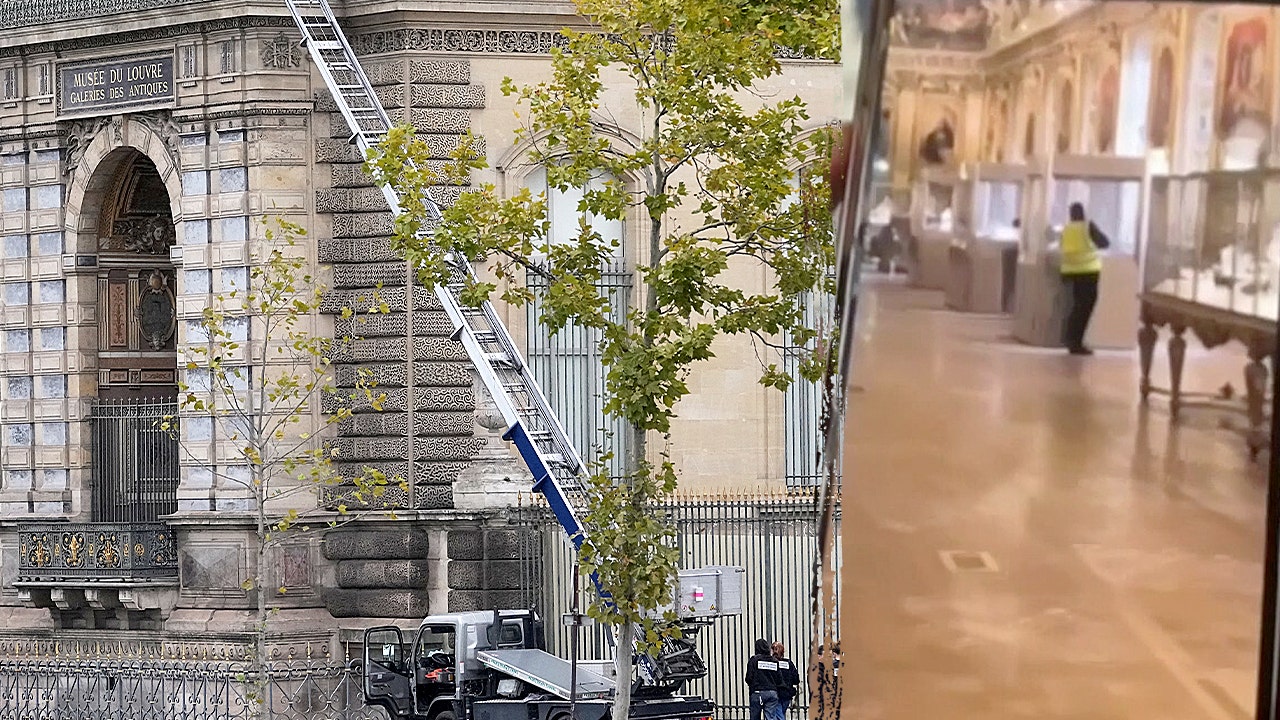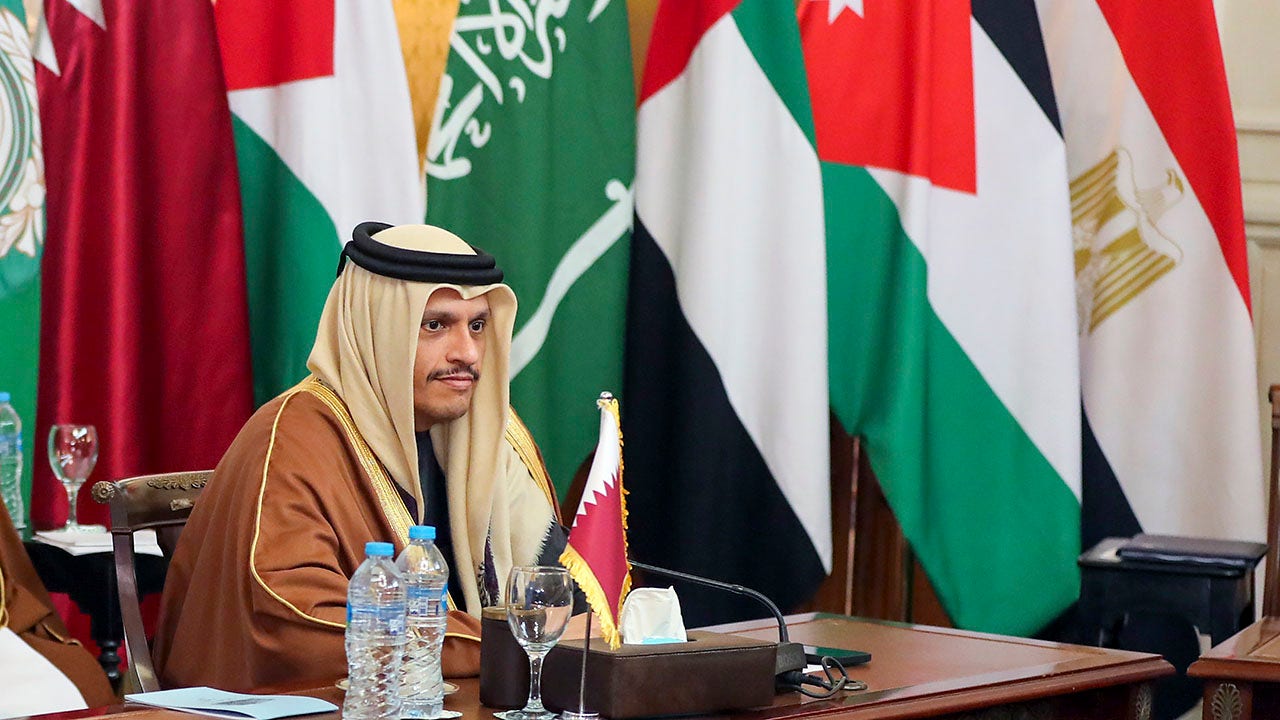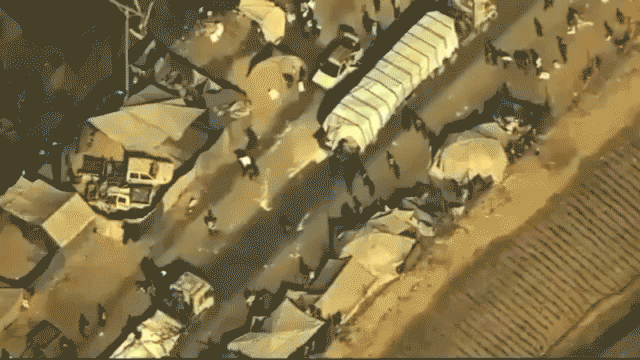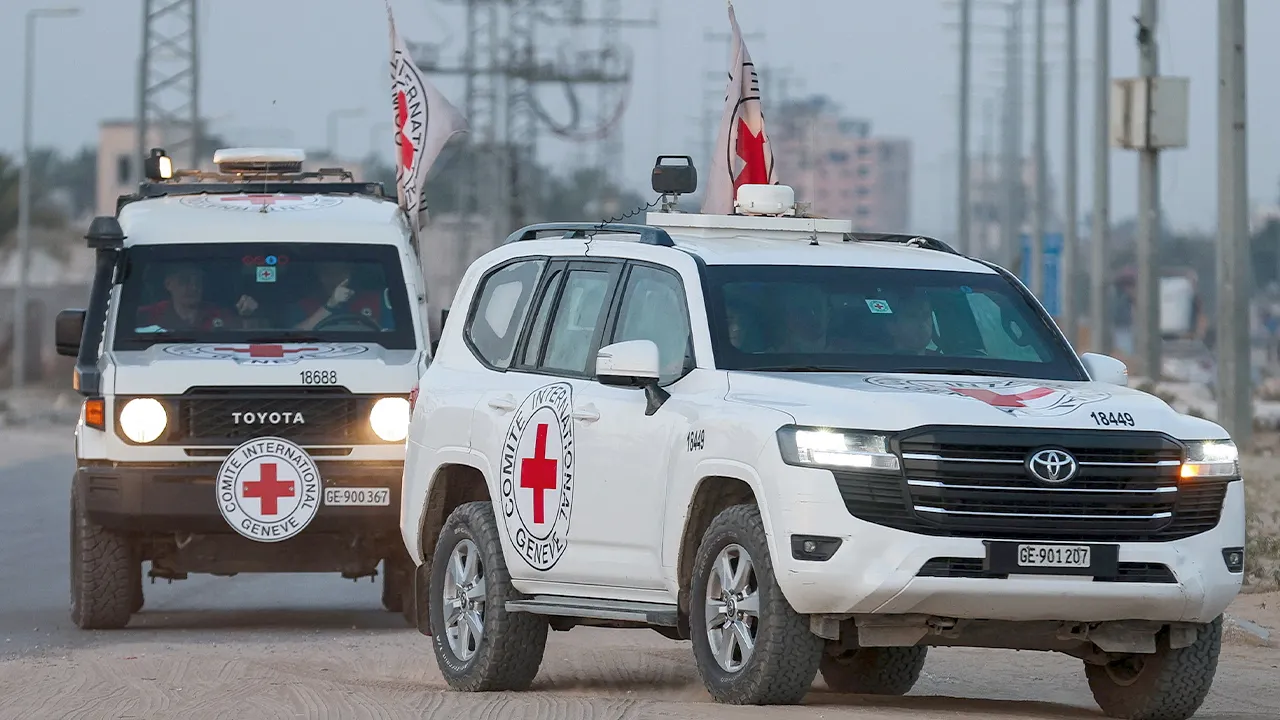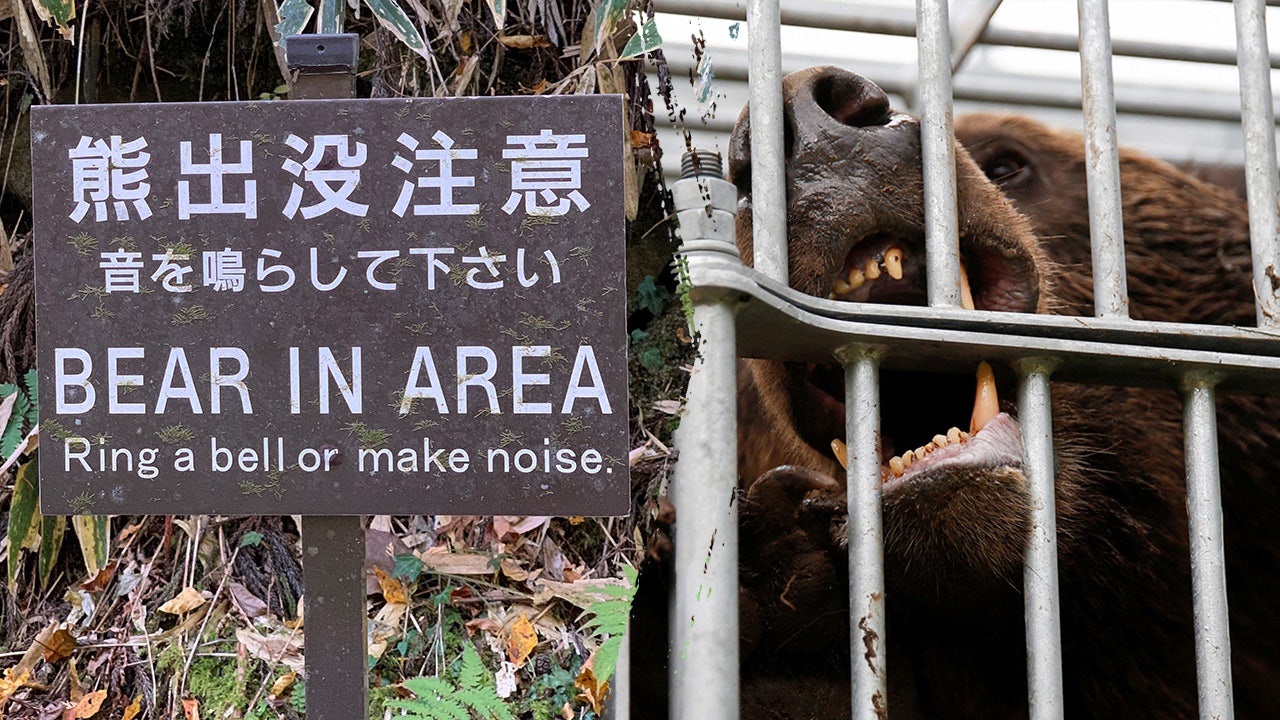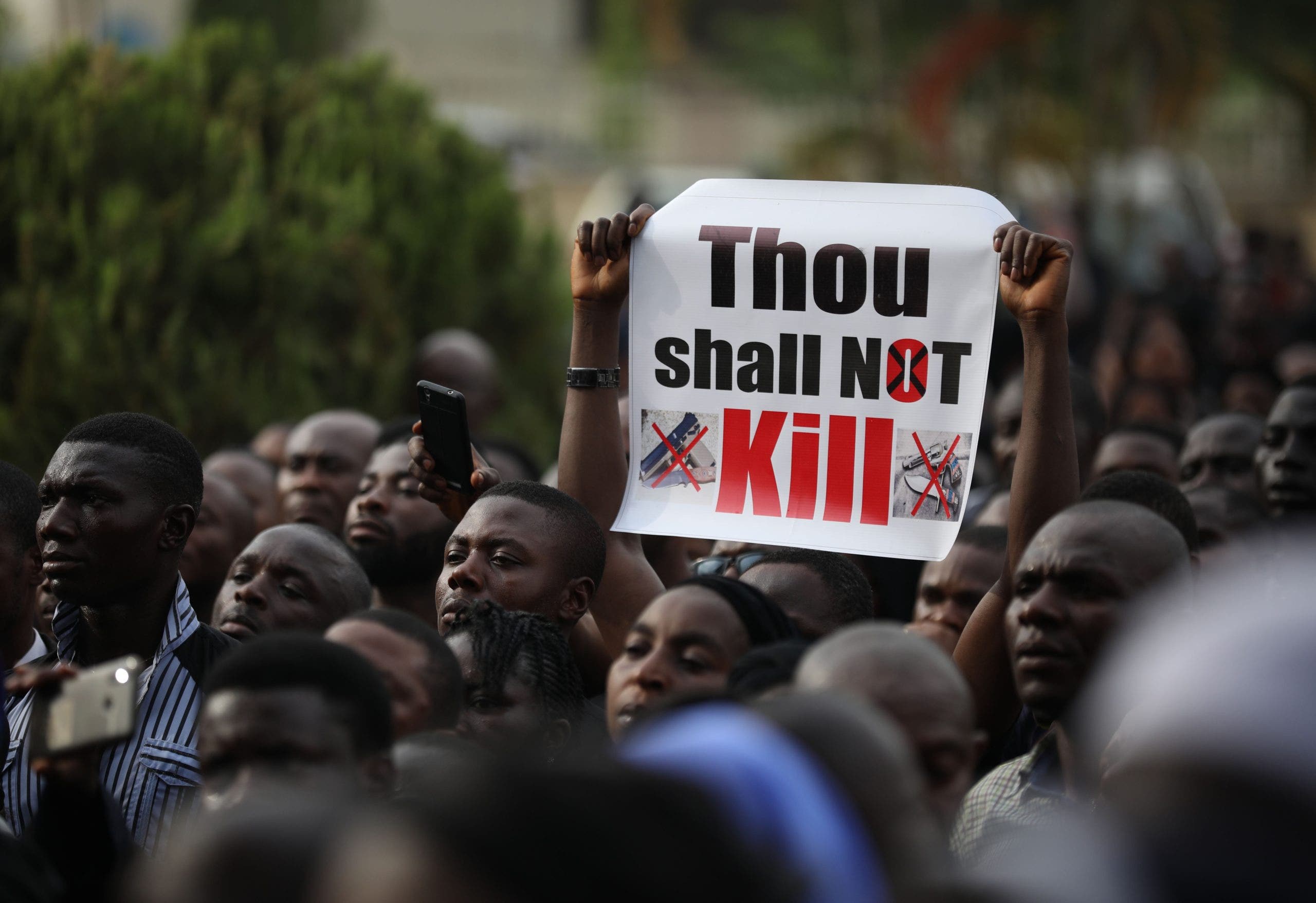A group of powerful Arab nations released a statement on Saturday rejecting President Donald Trump’s proposal that Palestinians in the Gaza Strip be relocated to Egypt and Jordan.
The foreign ministers of Qatar, Jordan, the United Arab Emirates, Saudi Arabia, and Egypt, as well as the Secretary-General of the Executive Committee of the Palestine Liberation Organization and the Secretary-General of the League of Arab States met in Cairo, Egypt, on Saturday, and released a joint statement afterward detailing matters that the leadership of the powerful Arab countries agreed upon.
Their agreements included “expressing the continued full support for the steadfastness of the Palestinian people on their land and their adherence to their legitimate rights under international law.” The statement said the officials “affirmed their rejection of any violation of these inalienable rights, whether through settlement activities, the expulsion and demolition of homes, land annexation, or the displacement of Palestinians from their land.”
“They also rejected any efforts to encourage the transfer or uprooting of Palestinians from their land, under any circumstances or justifications,” the statement, released in English by the Qatari government, said. “Such actions, they noted, threaten regional stability, exacerbate the conflict, and undermine the prospects for peace and coexistence among the region’s peoples.”
ISRAEL ORDERS UNRWA TO CEASE OPERATIONS IN COUNTRY OVER TERROR TIES: ‘MISERABLY FAILED IN ITS MANDATE’
The statement also “welcomes” the cease-fire and hostage release deal between Israel and Hamas that was brokered by Qatar, Egypt and the United States.
“The participants also expressed their commitment to working with the administration of US President Donald Trump to pursue a just and comprehensive peace in the Middle East, in line with the two-state solution, and to strive for a conflict-free region,” they said.
Trump was asked in the Oval Office on Friday if he believes that it is a good idea that Egypt and Jordan accept Palestinians from Gaza despite the two countries denying they would do so.
“I think Jordan will take people, yeah, people from Gaza, and I think Egypt will take them also. I mean, I heard somebody said they’re not going to, but I think they will. I feel confident they will,” Trump said.
Israel’s war in Gaza, which was started by the Oct. 7, 2023 Hamas attacks that killed 1,200 Israelis, is believed to have eliminated most of the terrorist organization’s grip on the region, but the matter of reconstruction and eventually reformed leadership without terrorist control hangs in the balance amid a fragile cease-fire agreement.
Trump first floated the idea of Egypt and Jordan taking in about 1.5 million people from Gaza while addressing reporters aboard Air Force One last month.
“I’d like Egypt to take people,” Trump said. “You’re talking about probably a million and a half people, and we just clean out that whole thing and say, ‘You know, it’s over.'”
“It’s literally a demolition site right now. Almost everything’s demolished, and people are dying there,” Trump said of the destruction caused by the 15-month war. “So, I’d rather get involved with some of the Arab nations, and build housing in a different location, where they can maybe live in peace for a change.”
Last week, President Abdel Fattah El-Sisi said the transfer of Palestinians from Gaza “can’t ever be tolerated or allowed.”
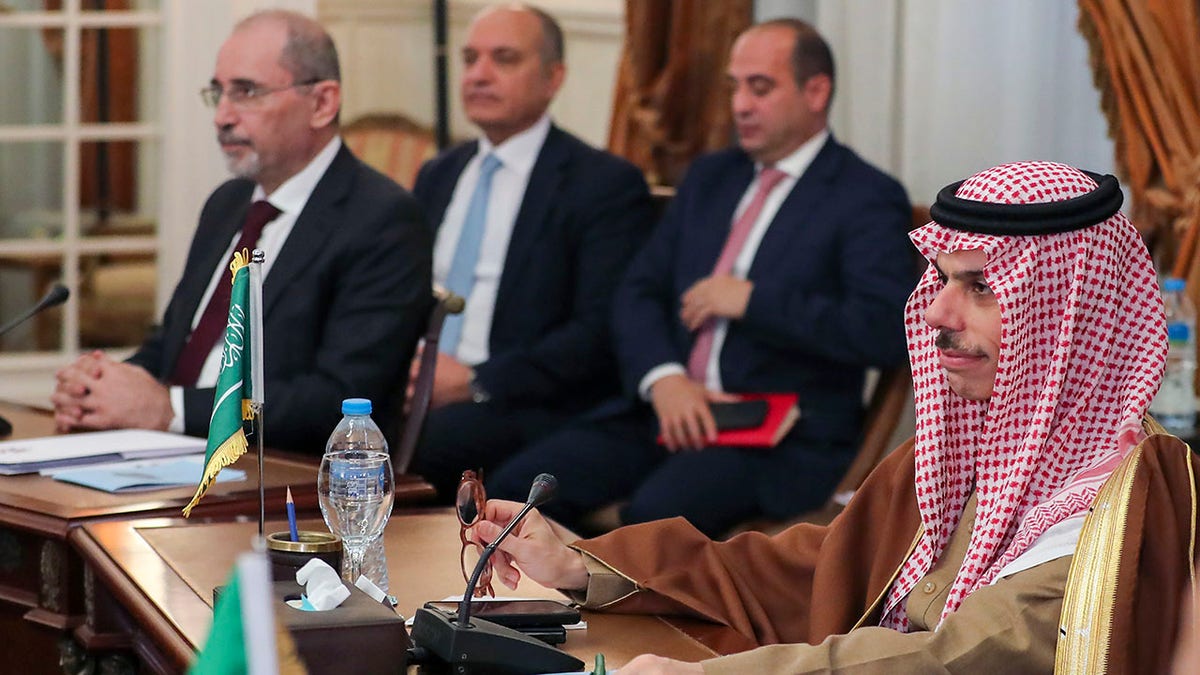
ISRAELI PARLIAMENT BANS UNRWA OVER TERRORISM TIES, FACES INTERNATIONAL BACKLASH
“The solution to this issue is the two-state solution. It is the establishment of a Palestinian state,” he reportedly said at a news conference. “The solution is not to remove the Palestinian people from their place. No.”
Jordan’s Foreign Minister Ayman Safadi also said that his country’s opposition to Trump’s idea was “firm and unwavering.”
The Egyptian government said El-Sisi received a call from Trump on Saturday but did not mention the issue.
“The call fostered a positive discussion between the two Presidents, underscoring the critical importance of advancing the implementation of the first and second phases of the ceasefire agreement, and ensuring the stabilization of the ceasefire in the Gaza Strip,” according to the Egyptian government read-out. “Additionally, the call emphasized the urgent need to increase the delivery of humanitarian aid and relief to the residents of Gaza.”
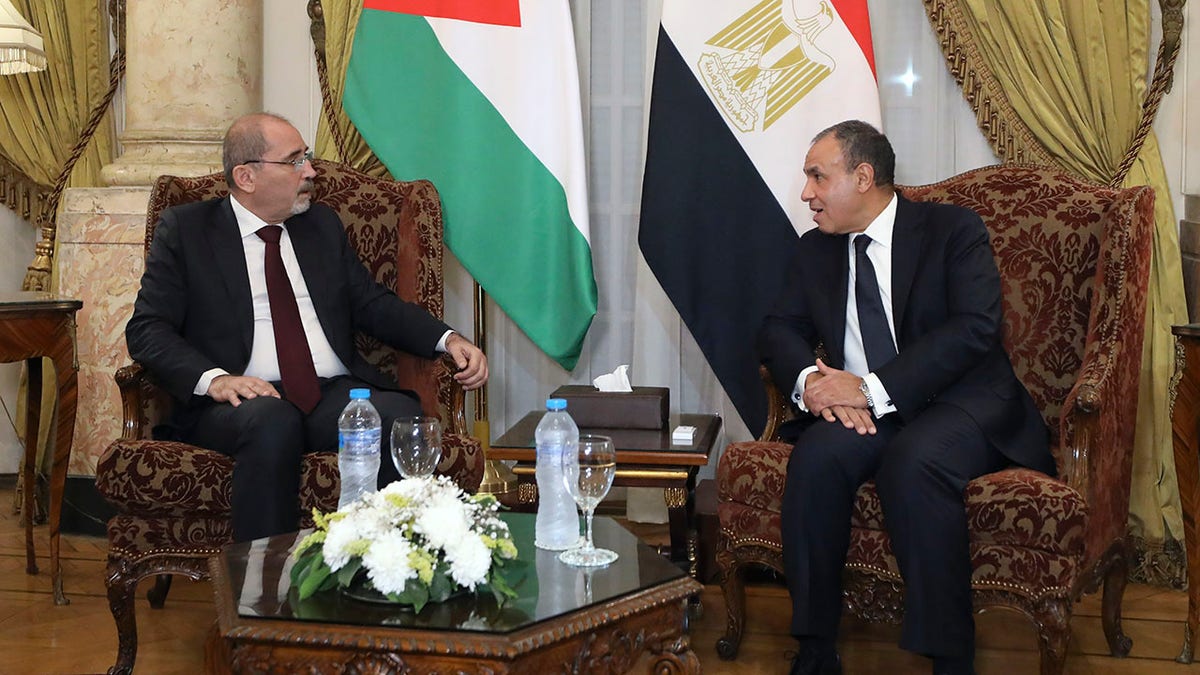
El-Sisi “reiterated the imperative to reach lasting peace in Middle East,” according to his government. “He affirmed that the international community places its trust in President Trump’s capacity to secure a historic and enduring peace agreement, which would bring an end to the decades-long conflict in the region. This is grounded in President Trump’s commitment to peace, which he underscored in his inaugural address, as a man of peace. President El-Sisi stressed the vital necessity to launch a peace process conducive to a permanent solution in the region.”
Jordan already is home to more than 2 million Palestinians, according to the Associated Press. Egypt has warned of security implications of transferring large numbers of Palestinians to Egypt’s Sinai Peninsula, bordering Gaza.
Both countries were the first to make peace with Israel, but they support the creation of a Palestinian state in the West Bank, Gaza and east Jerusalem, territories that Israel captured from Jordan and Egypt in 1967’s Six-Day War.
The Israeli government ordered the United Nations Relief and Works Agency (UNRWA) to cease its operations in the country as of Thursday amid allegations the agency is involved with the Hamas terrorist group.
The Arab nations’ statement Saturday also affirmed “the pivotal, indispensable, and irreplaceable role” of UNRWA and “categorically rejected any attempts to bypass or diminish its role.”
The Associated Press contributed to this report.
Read the full article here

